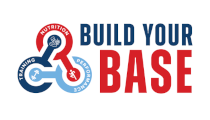High School Students Address Hazing Issues Through Award-winning Essays
By Hazing Prevention on September 26, 2023 state news PrintWhen asked to share their thoughts about hazing and how to prevent it, high school students from around the country responded with powerful essays tackling the issue. Students from Pennsylvania, North Carolina, Hawaii and Idaho are receiving national recognition for their essays as winners of the Hazing Prevention Network National Hazing Prevention Week High School Essay Contest sponsored by the National Federation of State High School Associations (NFHS).
“Hazing prevention starts with students,” said Elliot Hopkins, Director of Sports, Sanctioning and Student Services for NFHS. “The powerful words of these young people in support of preventing hazing and eradicating it gives us hope for progress on campuses throughout the country. They clearly understand the dangers of hazing and the serious consequences of it.”
Brandon Granger from Parkway Center City Middle College in Philadelphia, Pennsylvania, is the national first place winner with his essay “Creating Lasting Change” in which he discusses understanding the impact of hazing, promoting accountability and taking decisive action to effect lasting change. Brandon will receive a $750 cash prize for his work.
Second-place winner Cianni Lassus, also from Parkway Center City Middle College in Philadelphia, brought attention to hazing as a dangerous and degrading practice. She will receive a $500 cash prize.
Three were recognized with honorable mention for their work and will each receive $250: Rubi Silva from Apprentice Academy in Monroe, North Carolina; Ryan Choi from Mid Pacific Institute in Honolulu, Hawaii; and Emily Sanford from Moscow High School in Moscow, Idaho.
“The essay contest is an opportunity to empower today’s youth to share their own experiences with hazing and to use their voice to bring attention to this outdated and harmful practice," said Todd Shelton, Hazing Prevention Network executive director. "We commend Brandon, Cianni and all the students for taking a stand against hazing and sharing their stories.”
National Hazing Prevention Week is a nationwide effort to encourage campuses, schools, organizations, and communities to engage in conversations about the dangers of hazing, the detrimental cost of the practice to society, and how to actively prevent it. National Hazing Prevention Week typically falls the last week in September (September 25-29, 2023).
This year’s entries were judged on a 500-word original essay on hazing prevention with the theme “How can I make a difference against hazing?” You can learn more about National Hazing Prevention Week and the essay contest and read the winning essays at https://hazingpreventionnetwork.org/nhpw/.
Hazing Prevention
Most Recent Articles
- Track & Field/Cross Country article The Role of the Starter in a High School Meet
- nfhs news NFHS, NCAA, SFIA put on 2025 Team Sports Conference
- nfhs news Coaching Mental Wellness Course Now Offered on NFHS Learning Center
- nfhs news Final Four Participants Hope to Repeat State Championship Experiences
- nfhs news Former NFHS Assistant Director Susan True Passes Away







